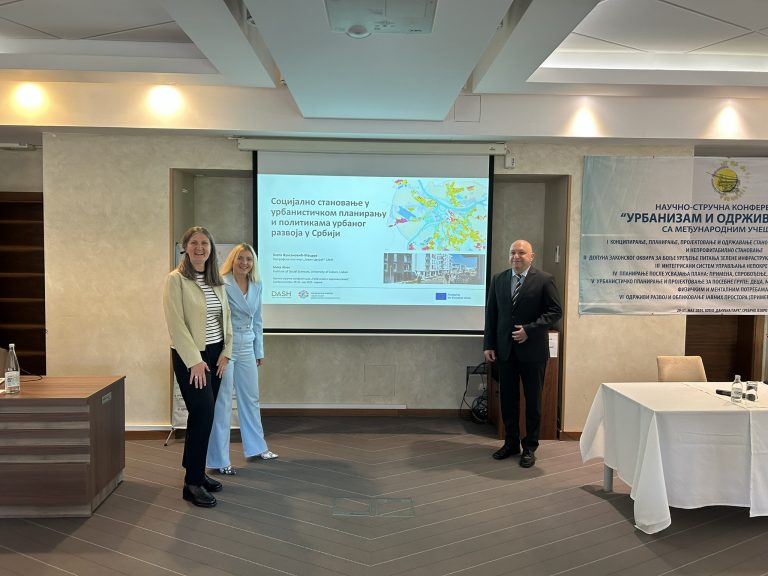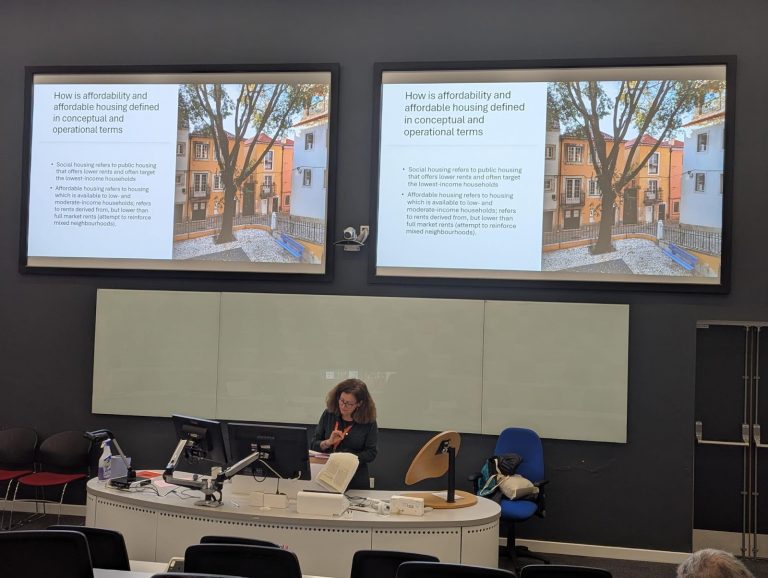By Marco Allegra
DASH member Marco Allegra presented a paper on local housing strategies (co-authored with Caterina di Giovanni) at the 5th International Congress on Housing in the Lusophone Space (CIHEL), which took place in Lisbon on October 2-4 at the Laboratório Nacional de Engenharia Civil.

Credits for image: CIHEL
CIHEL is a major housing studies conference in the lusophone world. Marco and Caterina presented a paper which collects the preliminary results of the project LOGO (LOGO – Local governance of housing policies. An investigation of local housing strategies), which focuses on the local dimension of housing policies – specifically, on the introduction, following the approval of the New Generation of Housing Policies (NGPH, 2018), of the Local Housing Strategies (LHS) in the Portuguese system.
The paper discusses the ambitious qualitative and quantitative goals of the NGPH: on the one hand, to progress towards more universal access to adequate housing (increasing the share of publicly-supported housing in the national housing stock from 2% to 5%); on the other hand, to introduce radical transformations in the governance of the sector (moving from a “centralized and sectoral” policy to a “multilevel, integrated and participatory” governance model and from a reactive “policy” to a “proactive policy” based on information, shared knowledge and continuous monitoring of results).
Local housing plans represent an indispensable tool for achieving these objectives; in more practical terms, the approval of the LHS has become an essential condition for municipalities to benefit from the post-pandemic, EU-sponsored Programa de Recuperação e Resiliência (PRR), which made available (for the first 15-20 years) significant funds dedicated to housing policy.
Against this background, the paper poses the following questions: to what extent has the introduction of ELHs and CMHs changed the governance of local policies? What impact has it had on the housing shortages in municipalities? What can we learn from recent past experiences to improve governance in the sector?
Based on the preliminary data coming from LOGO, the authors raise several “tension points” inherent to housing policy-making in Portugal, questioning the ability of the current round of investments to satisfy the country’s demand for affordable housing opportunities, and reflecting on the scenario of the post-PRR national housing policy.

